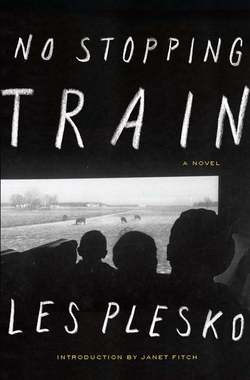Читать книгу No Stopping Train - Les Plesko - Страница 11
На сайте Литреса книга снята с продажи.
ОглавлениеAt the Galamb Cafe they were serving stale water in porcelain cups, air on fine china plates. “I enjoy Budapest best in the rain after war,” Margit said.
“It must suit your temperament,” Sandor said.
“What do you know about it?” Margit asked.
“Sad and a little bit mean, like this city,” he said. Russian soldiers stumbled across the sidewalk, watches up to their elbows, grain alcohol stunned. “They flush toilets for washing their food,” Sandor said.
Margit hated sitting around when she could have been mending or washing or looking for bread. Small talk gave her nerves.
“When the food drains away, the bayonets come out,” Sandor said.
Damp muggy air pasted Margit’s dress to her back and her chest. A cold draft raised the hairs on her neck. “The lesson is don’t eat with Russians,” she said.
Sandor laughed. Shadows from his glasses etched indents on his cheeks. She patted her coat for a cigarette. Two left so she offered him one.
“I don’t smoke,” Sandor said.
“Ciggies cut hunger cramps,” she replied. Behind him she saw the Parliament dome wrecked against the skyline, the church-tower clock frozen at noon or midnight. “It seems ridiculous not to smoke,” Margit said.
Sandor cupped his hands for her match. Pale light beat over his wrists. Around them, whoever had something was bartering it, chocolate bars, liquid vials. Out in the street, drunkards were singing the national anthem and pushing a powerless tram.
“The vanquished aren’t meek,” Margit said.
“They’re going to get that song wiped from their lips, you just watch,” Sandor said.
Margit blew a ring, watched faces pass busted-out windowpanes, cheekbones gaunt yet oddly lovely, like Sandor’s, she thought.
“Not you, though, with those papers you forge,” Margit said.
Sandor put his hand on her mouth. “You’re not supposed know about that.”
Margit knocked the tip from her spent cigarette, saved the butt. His hand smelled like ink and she wondered if she’d get accustomed to it. “Your girlfriend told me. Erzsébet.”
A long silence fell between them. Across the street, a lorry bumped to a halt. In the gap of its tarpaulin ribs, a man and woman were chained to a bench. The woman’s hair blew in her eyes. The man tried to wipe it away from her brow but he couldn’t, manacled like he was.
“I’m not going to sleep with you right away,” Margit said.
Sandor took off his glasses, rubbed them on his shirt. “Who said anything about that?”
Margit tapped her nails on her cup. “Because the war’s over, all the men think they can have any woman,” she said. “But I’m waiting for love.”
Sandor stood. Gypsies and children who roamed past the tables extended their palms. Waiters flapped napkins at them. Sandor scooped up a tip not his, tossed it at the nearest hand. They all knew the coins were worthless. A pengö before the war was worth half a quadrillion pengös now. Still, they grabbed.
“I guess we’re not coming back here for a while,” Margit said.
Hard to keep up, she had to hold on to his sleeve he was walking so fast. “You’re already in love. Maybe not with me but the idea of it. It’s caused by the end of the war,” Sandor said.
Margit made him slow down. “So you’re just the one who showed up.”
Sandor shrugged. He glanced at their reflection in an unbroken storefront. “We look all right together, well matched.”
Margit stopped, tried lighting a cigarette into the wind. “You’re trying to make me believe this was all my idea,” she said.
Sandor turned up his palms. “What idea is that?”
Margit had to smile. “Your secrets. Your redhead.” She blew smoke in his face. “You’re coy,” Margit said.
Sandor took a drag off her cigarette, made sure their fingers touched. “But you like that, Margit,” he replied, and she longed to believe that she might.
